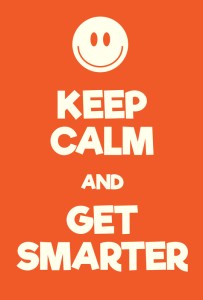
(c) CanStockPhoto
A Personal Reflection, Review, and Suggestion for Rec Therapy Application of
Tony Hsieh’s (2010) book, Delivering Happiness, with applications to Rec Therapy Practice
Source:
Hsieh, T. (2010). Delivering happiness: a path to profits, passion, and purpose. New York: Business Plus.
By Danny Pettry
Seth Godin is one of my favorite authors. I read everything he writes and almost everything he recommends. Godin said this about Tony Hsieh’s “This book is funny, true, important, and useful. Just like Tony.” I decided to read the book.
Tony Hsieh became the CEO at Zappos at the age of 24. Zappos originally sold shoes online. The company now claims to provide customer service and happiness as well as many other online items. Today, the company is owned by Amazon.
Hsieh’s book has three sections.
These include:
Part I: Profits
Part II: Profits and Passion
Part III: Profits, Passion, and Purpose.
Reading is the secret. Hsieh shares this right in the preface that, “at Zappos, we encourage our employees to read books from our library to help them grow, both personally and professionally.” Here at DannyPettry.com: Rec Therapy CEUs, we also encourage recreational therapists to read books for the same reason.
A Review of Part I: Profits
Hsieh provides an autobiography of his own life as an entrepreneur. I personally enjoyed Hsieh’s concept of poker in business.
Hsieh suggests:
- Play [poker] games you understand. It is hard to win at a game a person does not know well. “This reminds me of effective recreational therapy practice. Provide interventions that you have had training and experience to provide.
- Remember you always change tables. Recreational therapists might realize they are not happy or as successful in a certain area and they may want to work towards moving into a position they are better suited for. I have often heard recreational therapists say they would never want to work with a certain population and to realize they have a strong passion for it once they have tried it out.
There is a bigger purpose at play
Hsieh shared, “research from the field of happiness would confirm that the combination of physical synchrony with other humans as part of something bigger than one self leads to greater happiness.”
This appears to be the case with recreational therapy. We, too, are working on a team with many other professionals to help patients. I feel there is something “bigger” to everything we do in life. There is a greater purpose.
Profit is best achieved when a person understands what they are doing (competency), has a passion for it (loves it), and feels they are (part of something bigger).
Rec therapists can be successful as well when they develop continued competencies to do their job and to continue to grow and following passion. Recreational therapists may want to think that their purpose is beyond simply working for xyz hospital, or making a salary, or being a recreational therapist. Recreational therapists may want to seek out something bigger.
A Review of Part II: Profits and Passion
Profits are important. Hospitals (where most Recreational Therapists) work need profits in order to stay afloat. Valuable services are provided when a hospital is profitable. Those that go out of business are no longer providing services for the community.
Hsieh discusses times when Zappos struggled with profits. He was real with the staff, letting them know the importance of getting back to being profitable.
- Provide better customer service.
This goes far beyond just being good to customers. It includes being good to everyone, like the vendors. All people are treated well.
Hsieh provides a list of 10 ways to instill customer service into your company on page 147.
In a nutshell, these concepts included: everyone in the company is responsible for customer service, WOW people, empower employees to provide great services, be real (no upselling or phony scripts) in conversations, customer calls are a way to build rapport, hire people who love customer service, all people get customer service.
I personally believe recreational therapists are people (in general) who are already good at heart and treat people well.
- It is not about selling shoes at Zappos. It is bigger.
This is a lot like saying, it is not about the “Activity” in recreational therapist. It is about meeting the target goals the patient has, such as increased stamina, increased interpersonal skills, and increase independence in identified functional areas.
Ask Anything – an open culture
Zappos has an open, transparent culture. Employees can ask the company anything (with or without using their name). These questions and answers are emailed monthly.
An employee could ask:
- Is the company profiting?
- When is the holiday party or company picnic
- Where is the company going to be in three years?
- When is national ice cream day?
Recreational therapists could encourage this process to take place at their facility, pending the administration is open to it. Recreational therapists could give them a copy of Hsieh’s book.
- As you grow, you might need to move “to a bigger [poker] table
Zappos started to provide more accessories beyond shoes.
Recreational therapists may want to strive to provide more services beyond recreational therapy for customers. Recreational therapists may want to supervise interns, provide trainings for fellow staff, and organize events for hospital / agency employees in effort to boost morale (pending administration approves).
Have Core Values
There company solicited values from employees. Some of the values were overlapping. They narrowed it to this list:
| The Ten Core Values at Zappos include:
1.) Deliver WOW Through Service
2.) Embrace a Drive Change
3.) Create Fun and a Little Weirdness
4.) Be Adventurous, Creative, and Open-Minded
5.) Purse Growth and Learning
6.) Build Open and Honest Relationships with Communication
7.) Build a Positive Team and Family Spirt
8.) Be Passionate and Determined
9.) Be Humble. |
Hospital/ agencies often have their own list of values. Do employees actually know what they are? Do they buy into it?
Recreational therapists could take the initiative and choose to be leaders in the company core values. Recreational therapists could volunteer to help develop these values for their company if they are not already created. Of course, I am idealistic. I understand that recreational therapists are often already pretty busy people. And I’d like to point that Hsieh suggested, “do more with less.”
Recreational therapists could create their own personal values for work.
At my hospital, we have “WOW cards.” Anyone can fill one out by identifying a staff and writing why they provided a wow.
At my own company, DannyPettry.com: Rec Therapy CEUs shares several of those same values such as: have a growth mindset and being determined and passionate and of course being humble.
Employee Training at Zapppos
Zappos provides courses for their staff. These include: communication skills, coaching, science of happiness, leadership, public speaking, stress management, manager orientation, time management, grammar and writing, how to write effective emails, and many more topics. Employees can receive pay rate increases for completing courses as well.
A Review of Part III: Profits, Passion, and Purpose
This was the smallest chapter. The focus was on “taking it to the next level.” It felt very Rogarian in the style of Carol Rogers. The three basic tips were: be passionate, tell personal stories, and be real.
Two books suggested were: Good to Great and Tribal Leadership.
Bibliography
Hsieh, T. (2010). Delivering happiness: a path to profits, passion, and purpose. New York: Business Plus.



 Submitted By Haley Burress, Master of Science in Recreation Administration, with Recreation Therapy Emphasis, and Writer for
Submitted By Haley Burress, Master of Science in Recreation Administration, with Recreation Therapy Emphasis, and Writer for